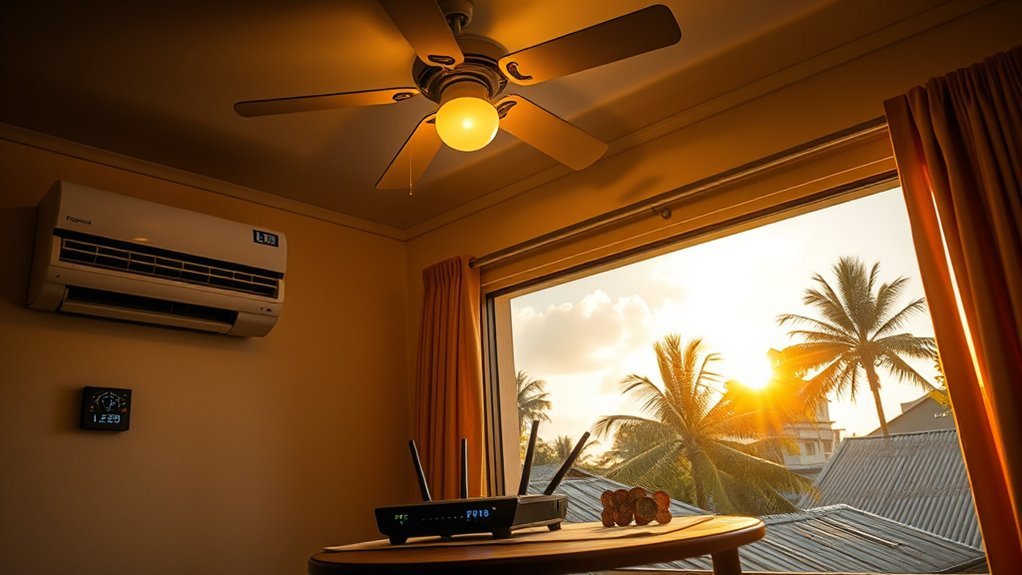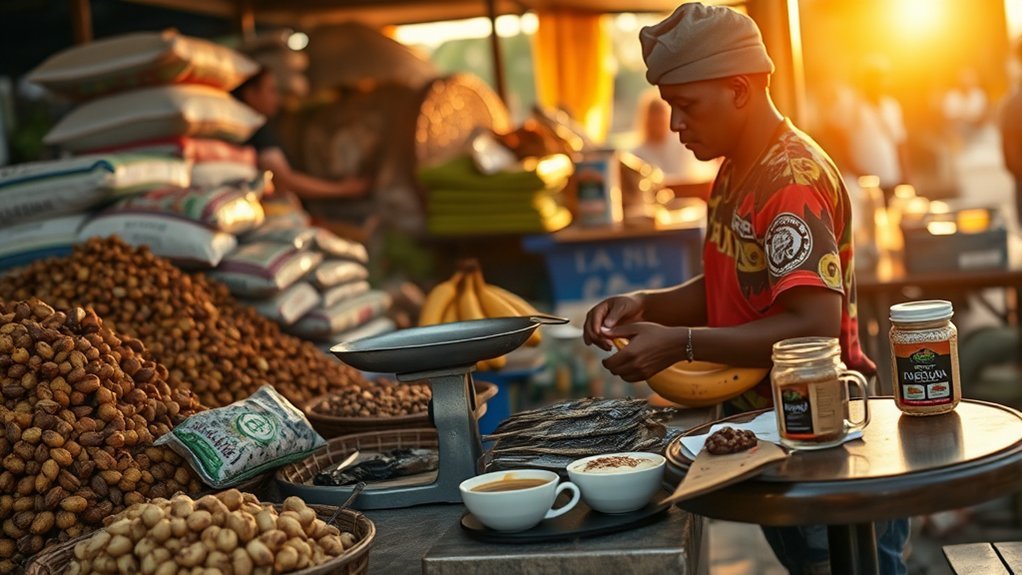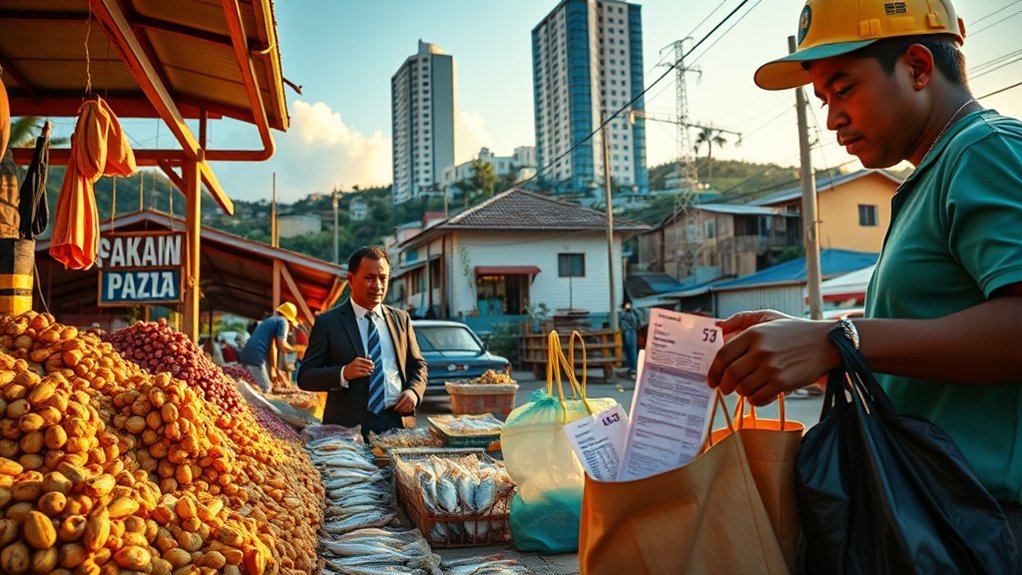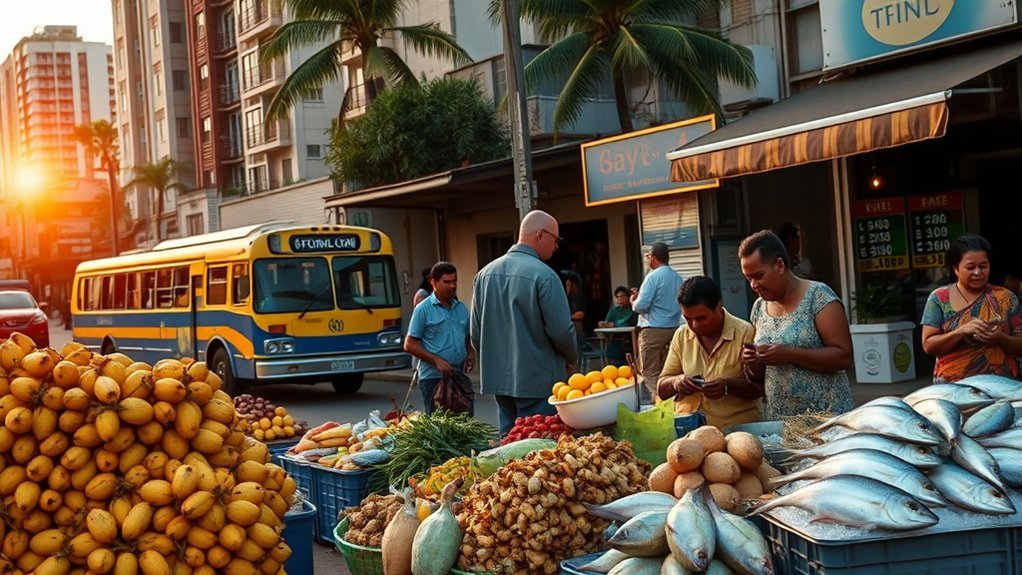You’ll need roughly $560–$600 monthly for basic living in Papua New Guinea, though costs vary drastically by city and lifestyle standards. While simple city units rent for around $238, expats typically face much higher costs for secure, central apartments.
The average cost of living in Papua New Guinea is approximately $560–$600 per month for a single person excluding rent. However, housing varies significantly: secure expat apartments in Port Moresby range from $1,000 to over $3,000, while basic local rentals cost roughly $240. Internet is expensive, averaging $200+ for broadband.
Key Takeaways
- High Rent Variance: Local housing is cheap ($240+), but secure expat housing in Port Moresby often exceeds $1,000–$1,500/month.
- Expensive Connectivity: Fixed internet is a major budget item, costing ~200% more than in the U.S.
- Food Costs: Local market produce is affordable, but imported groceries and dining out at international hotels will spike your budget.
Cost of Living Overview and Key Numbers

While Papua New Guinea’s overall cost of living index appears low—about $562 monthly—you will find significant budget pressure from modest local incomes (average after-tax salary ~$213) versus high city rents. For a clear overview, use these anchors to plan your monthly spending:
- Utilities: Roughly $40.50 (basic electric/water).
- Internet: Approx. $25.70 for mobile data, but much higher for home wifi.
- Daily Food: Lunch menus around $4.00; dinner for two near $22.40.
This data-driven snapshot shows living cheaply is possible, but financial breathing room depends heavily on earning above the local average or securing subsidized housing.
Housing and Rental Prices by City

When you compare city center rents, expect Port Moresby one-bedrooms to start around $1,000/month, with two-bedroom units reaching $1,500 or more. Outside urban cores, one-bedrooms can drop near $534, and rural options are generally much cheaper. If you are an expat, plan to budget for furnished units with security, as quality housing inventory is limited.
City Center Rents
Although living costs vary, city-center rents give a clear picture of urban housing prices. A basic one-bedroom costs about $238/month locally, but “expat-standard” secure units are significantly pricier. Urban accommodation can be cost-effective if you need proximity to jobs, but always budget for occasional maintenance or management fees.
Suburban and Rural
You should expect steep price differences between cities and the countryside. While Port Moresby commands the highest rents, suburban and rural one‑bedroom options can drop into the $238–$493 range. Note that while costs fall in rural areas, clean, secure, and furnished options become scarce, pushing many expats back toward urban centers.
Monthly Utilities and Internet Costs

Curious how much you’ll pay to stay powered and connected? Monthly utilities (electricity, water, gas) average about $40.50 per person. If you rent an 85 m² apartment, expect roughly $100 monthly in utilities.
However, fixed internet is pricey. Plans offering unlimited data can average $213.80—significantly more expensive than U.S. equivalents. Many residents favor mobile data bundles (approx. $49.40 for ~10GB) or negotiate corporate packages to manage this cost.
Food, Groceries and Dining Out

Basic groceries vary: a liter of milk is about $1.21 and a dozen eggs roughly $1.74. Eating out can be economical if you stick to local spots, where a meal costs around $8.80.
Typical Grocery Prices
| Item | Price (USD) |
|---|---|
| Milk (1 L) | $1.21 |
| Eggs (dozen) | $1.74 |
| Bread (Loaf) | ~$1.60 |
| Rice (1kg) | ~$1.50 |
Eating Out Costs
Dining out is often cheaper than in the U.S. if you avoid luxury hotels. A cheap restaurant meal runs about $8.80, while a three-course dinner for two averages $48.60. Fast-food combos are around $6.10, and a domestic beer (0.5L) costs roughly $2.90.
Transportation and Fuel Expenses

Transport costs depend heavily on your mode of travel. A one-way local ticket (PMV) is just $0.46, and a monthly pass is around $18.10. However, taxis for short trips (8km) cost around $7.26, and gasoline is roughly $1.06 per liter. For expats, owning a 4WD vehicle is common, which adds maintenance and fuel costs to the budget.
Salaries, Income and Purchasing Power

The average after-tax monthly salary in PNG is about $213, which covers only a fraction of typical expat expenses. While local prices are lower than the world average, the purchasing power for locals is constrained. Expats typically negotiate salaries significantly higher ($3,000+) to offset costs for security, housing, and private services.
Education, Childcare and Healthcare Costs

If you’re moving with family, these costs will likely be your largest expenses after rent:
- International School: $1,500–$3,000 per month.
- Private Childcare: $300–$600 per month.
- Private Healthcare: Consultations start at $50; comprehensive health insurance is essential as emergency evacuations can be very costly.
Currency and Budgeting Tips
The currency is the Papua New Guinean Kina (PGK). The exchange rate fluctuates, but is roughly 1 USD = 4.19 PGK. Always convert prices to your home currency when planning. Track your fixed costs (especially rent and internet) first, then allocate for groceries. Due to transfer fees, compare rates from banks and remittance services if you are sending money internationally.
Frequently Asked Questions
What is the average price of a house in Papua New Guinea?
House prices vary drastically by location and security level. Modest rural homes can cost under $50,000, while secure properties in Port Moresby often exceed $200,000, with luxury compounds reaching significantly higher prices.
Is Papua New Guinea cheap to live in?
It depends on your lifestyle. While local food and public transport are cheap (roughly $560/month for basic living), expat-standard housing, security, and imported goods are expensive, making it costly for foreigners compared to local averages.
Can foreigners live in Papua New Guinea?
Yes, foreigners can live in PNG with a valid work or residence visa, typically sponsored by an employer. Expats mostly reside in secure urban compounds in Port Moresby or Lae due to safety concerns.
What is a good salary in PNG?
A good expatriate salary usually ranges from $3,000 to $5,000+ USD per month to cover secure housing, reliable transport, and healthcare. In contrast, the average local salary is approximately $213 per month.


